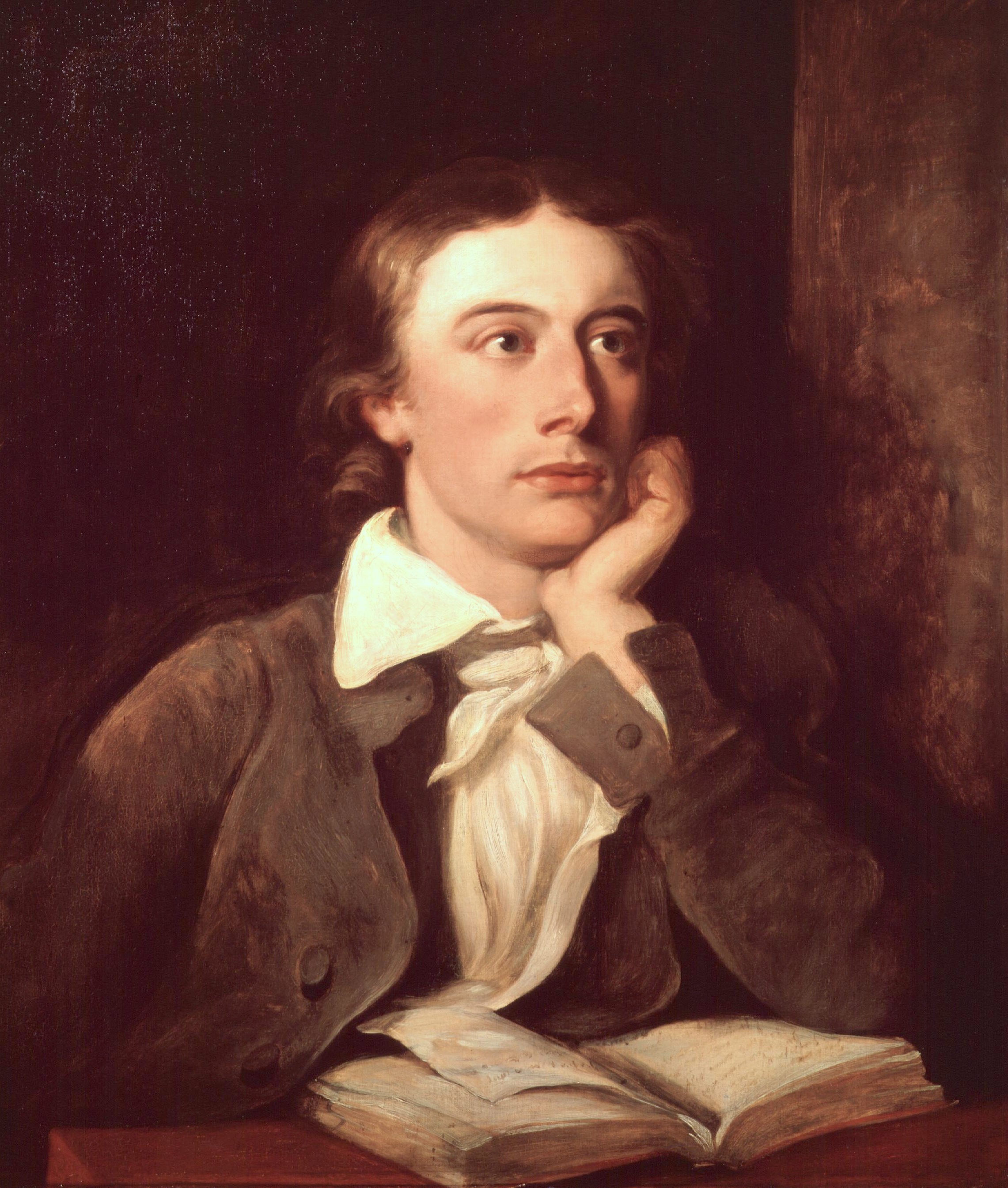Tender is the night. (ang.)
użyte przez F. Scotta Fitzgeralda w tytule jego powieści z 1934 roku.
Źródło: Oda do słowika (1819)
John Keats słynne cytaty
„Rzecz piękna jest radością wieczną.”
A thing of beauty is a joy for ever. (ang.)
Źródło: Endymion, w. 1 (1818)
„Myślę, że po śmierci będę wśród Angielskich Poetów.”
I think I shall be among the English Poets after my death. (ang.)
Źródło: list do George'a i Georgiany Keats (14 października 1818)
„Piękno jest prawdą, prawda pięknem!” – oto
Co wiesz na ziemi i co wiedzieć trzeba.”
Źródło: Oda do urny greckiej (1818–1819), tłum. Zenon Przesmycki (Miriam)
La) Belle dame sans merci. (fr.
tytuł ballady z 1819 roku, zapożyczenie z tytułu wierszowanego dialogu Alaina Chartiera, poety francuskiego.
„Tutaj spoczywa ten, którego imię zapisano na wodzie.”
Here lies one whose name was writ in water. (ang.)
Źródło: epitafium na grobie Keatsa (1821)
John Keats: Cytaty po angielsku
“Thou art a dreaming thing,
A fever of thyself.”
Źródło: Bright Star: Love Letters and Poems of John Keats to Fanny Brawne
“My chest of books divide amongst my friends.”
Keats' last poem which doubled as his last will and testament
Bk. IV, l. 173
Endymion (1818)
Źródło: The Complete Poems
Kontekst: To Sorrow
I bade good-morrow,
And thought to leave her far away behind;
But cheerly, cheerly,
She loves me dearly;
She is so constant to me, and so kind:
I would deceive her
And so leave her,
But ah! she is so constant and so kind.
Letter to John Hamilton Reynolds (February 3, 1818)
Letters (1817–1820)
“Was it a vision, or a waking dream?
Fled is that music: — Do I wake or sleep?”
Stanza 8
Poems (1820), Ode to a Nightingale
To Fanny Brawne (c. February 1820)
Letters (1817–1820)
Kontekst: "If I should die," said I to myself, "I have left no immortal work behind me — nothing to make my friends proud of my memory — but I have loved the principle of beauty in all things, and if I had had time I would have made myself remembered."
“I will clamber through the clouds and exist.”
Źródło: Letters of John Keats to His Family and Friends
To Fanny Brawne (July 25, 1819)
Letters (1817–1820)
Źródło: Bright Star: Love Letters and Poems of John Keats to Fanny Brawne
“Through buried paths, where sleepy twilight dreams
The summer time away.”
Źródło: Bright Star: Love Letters and Poems of John Keats to Fanny Brawne
Źródło: Bright Star: Love Letters and Poems of John Keats to Fanny Brawne
“Beauty is truth, truth beauty”
Źródło: Ode on a Grecian Urn and Other Poems
“Already with thee! tender is the night.”
Stanza 4
Poems (1820), Ode to a Nightingale
“Darkling I listen; and, for many a time
I have been half in love with easeful Death”
Stanza 6
Poems (1820), Ode to a Nightingale
Źródło: The Complete Poems
Kontekst: Darkling I listen; and, for many a time
I have been half in love with easeful Death,
Call'd him soft names in many a musèd rhyme,
To take into the air my quiet breath;
Now more than ever seems it rich to die,
To cease upon the midnight with no pain,
While thou art pouring forth thy soul abroad
In such an ecstasy!
Still wouldst thou sing, and I have ears in vain —
To thy high requiem become a sod.
